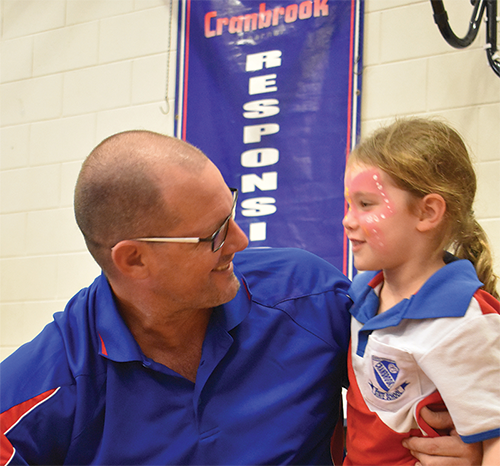By his own admission, Cranbrook State School principal Jeffrey Capell was initially resistant to the idea that the school could better support the development of children before they were old enough to actually enrol in school.
He had tried running a playgroup, but it hadn’t achieved much and anyway, he believed it wasn’t the school’s role to work in the early education space. He felt the school did the best it could with its transition program as children started prep.
When Mr Capell agreed to participate in the trial of the new AEDC toolkit, he was pretty sure he already understood his students and couldn’t see how the data would benefit school program planning.
Now, however, it’s a different story. He describes the effect of using the toolkit as ‘pretty powerful’.
“We worked with the Institute developing the tools, and more importantly the process of working with stakeholders,” Mr Capell said.
“That was the part we didn’t have right. We thought ‘here is a problem’, but we’d fix it ourselves, working in isolation. Through using the tools we were able to see what sorts of stakeholders could be involved and could impact on AEDC data.
“(We realised) we’d been putting our efforts in the wrong place. Using the resources we are able to bring everyone together and then work out the best way forward.”
What had been a scattergun approach when trying to support vulnerable children changed to a determined focus. The school brought together a broad network of people, including the Department of Housing, several Aboriginal services, and the local council.
They learned how the school was connected to the community and how it could work together to support kids and families. A playgroup offering a range of services was born.
The playgroup team connected with the 33 per cent of families the AEDC data identified as most vulnerable – children who would not usually have any experience with school before they started.
They had not attended the first attempt at starting a playgroup, but became enthusiastic through the collaborative approach.
Mr Capell’s attitude has now completely turned around.
“I was somewhat skeptical, but I went in wholeheartedly. The feedback from the teachers was amazing – they said we can’t afford not to continue.
We have got four or five weeks extra learning in, because these kids are turning up to day one and know all about school – allowing teachers to start teaching what they’d normally have to wait at least a month to begin.”
He was looking towards investing more in the early years and hoping to see the benefits at school.
“Families are getting access to services. Instead of parents having to find them, the services would come to the families,” he said.

